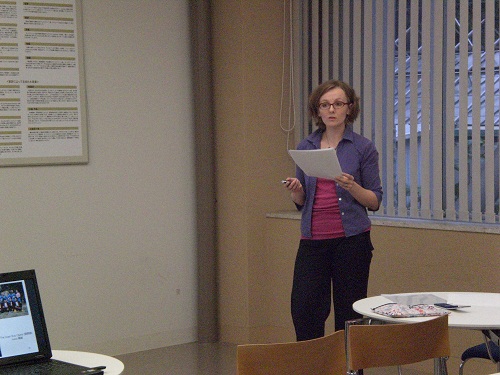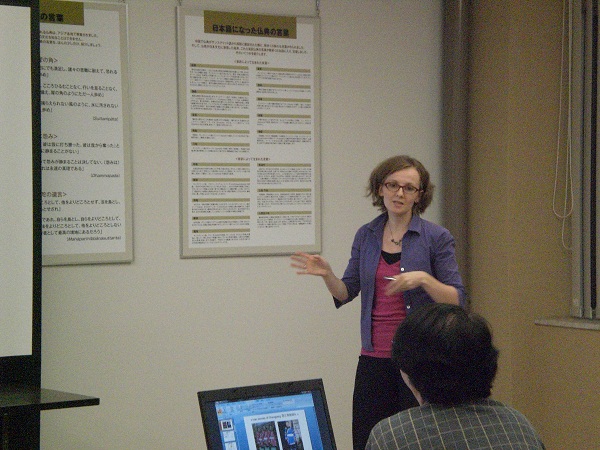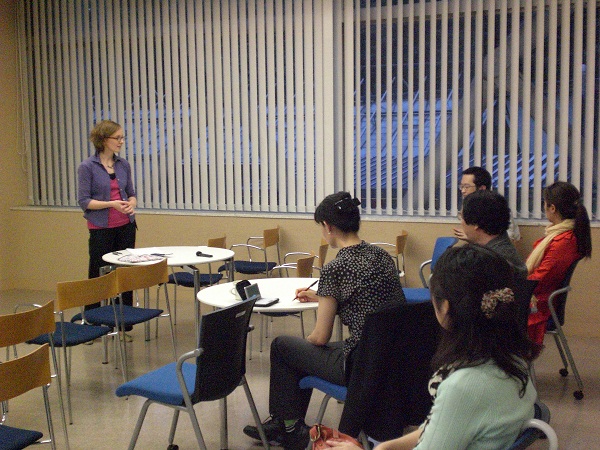‘Being Han in a Multi-Ethnic Region of the People’s Republic of China:
An Anthropological Perspective on the Inhabitants of Yangzong Valley, Yunnan Province’
第12回東文研・ASNET共催セミナーが9月16日(木)に開催されました。
以下、報告させていただきます。
日時:9月16日(木)午後5時~6時
場所:東京大学東洋文化研究所 1階ロビー
テーマ:’Being Han in a Multi-Ethnic Region of the People’s Republic of China:
An Anthropological Perspective on the Inhabitants of Yangzong Valley, Yunnan Province’
報告者:Sylvie Beaud(東京大学東洋文化研究所外国人研究員/パリ第10大学人類学科博士課程研究生)

発表要旨
My presentation, titled: ‘Being Han in a Multi-Ethnic Region of the People’s Republic of China: An Anthropological Perspective on the Inhabitants of Yangzong Valley, Yunnan Province’ drew on ethnographic material collected in Yangzong county (China, Yunnan).
It dealt with how the members of this peripheral Han population were categorized and categorize themselves in relation to minority groups and to notions of Chinese identity. I intended to demonstrate that the specificity of the Han of Yangzong is framed by an ongoing tension between two contrasting points of view: they appear both as one local ethnic minority among others, and, notably by means of ritualized theatrical representations, as the legitimate representatives of a national majority.
This presentation raised many questions in the audience. Among these, the reasons why the people in Yangzong claim to a Han identity remain unclear and the pride of being Han seemed a not fully convincing reason. Some elements of the provincial tourist policy as well as the local economy have to be taken into consideration too.
Further explanations regarding the origins of the population itself and the neighboring communities were also given during the discussion.
Finally, since I argued that the local nuo (exorcist) drama, the Guan Suo Opera, was displaying a direct reference for Hanness, I have been asked what was the situation in the past. Indeed, before ethnicity was state-determined, one can expect that what was at stake in the Guan Suo Opera was of different nature. More generally, the Guan Suo Opera retains memory of the history of the region and organizes the sociality in keeping with kinship relationships. The minzu matter can be regarded as a supplementary layer that came along with recent history.
All the comments and questions have been stimulating and leading to further analysis.
[Sylvie Beaud]


次回の第13回東文研・ASNET共催セミナーは9月30日(木)17時より、開催されます。
http://www.asnet.u-tokyo.ac.jp/node/6958
通常とは会場が異なりますので、ご注意下さい。
多くの皆様のご参加をお待ち申し上げております。

